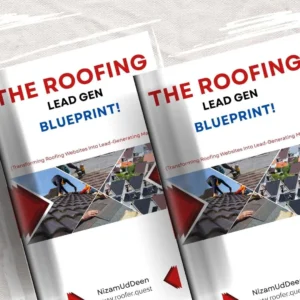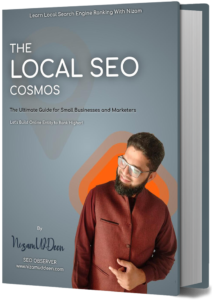Vastness-Depth-Momentum (VDM) is not just a content framework—it is a semantic architecture model for building topical maps that scale authority, relevance, and user engagement simultaneously. Instead of publishing disconnected blog posts, VDM structures content as a living knowledge system where coverage, depth, and flow reinforce each other.
At its core, VDM aligns directly with how modern search engines evaluate topical authority, semantic relevance, and contextual flow across a domain. It helps transform a website from a collection of pages into a semantic content network that search engines can trust, understand, and rank consistently.
This Part 1 focuses on the conceptual foundation of VDM—what it is, why it exists, and how each dimension (Vastness, Depth, Momentum) functions within a topical map.
Understanding Topical Maps in Semantic SEO
A topical map is a structured representation of how content pieces relate to each other around a central entity and its surrounding subtopics. Unlike keyword lists, topical maps operate on meaning, relationships, and intent alignment, making them essential for semantic SEO.
A well-designed topical map ensures:
Comprehensive contextual coverage across a subject
Clear contextual hierarchy between parent topics and subtopics
Logical internal link paths that guide both users and crawlers
This structure mirrors how search engines build understanding through entity graphs, topical graphs, and knowledge domains, allowing your content to align naturally with ranking systems rather than fighting them.
If you’re new to this concept, understanding what a topical map is provides essential groundwork before applying VDM at scale.
Why Vastness-Depth-Momentum Exists?
Traditional content strategies often fail because they optimize pages in isolation. Search engines, however, evaluate clusters, relationships, and consistency across an entire domain.
VDM was designed to solve three persistent SEO problems:
Incomplete topical coverage leading to weak authority
Shallow articles that fail to satisfy long-tail and expert intent
Poor internal linking that breaks the user journey
By combining breadth (Vastness), detail (Depth), and flow (Momentum), VDM creates a system where each article strengthens the others—preventing ranking signal dilution while reinforcing topical consolidation.
This aligns directly with semantic systems that prioritize semantic relevance, knowledge-based trust, and content publishing momentum.
Vastness: Building the Semantic Surface Area of a Topic
Vastness refers to the breadth of topical coverage—how fully your content ecosystem spans all relevant subtopics, query variations, and intent types related to a central theme.
Search engines increasingly reward sites that demonstrate contextual coverage, not just keyword optimization. Vastness ensures your topical map answers every reasonable question a user might have within a domain.
What Vastness Looks Like in Practice?
Achieving vastness means expanding outward from a core topic using semantic logic rather than guesswork.
Key characteristics include:
Coverage of informational, navigational, and comparative intents
Inclusion of beginner, intermediate, and advanced subtopics
Mapping related concepts using topical borders to avoid drift
Structuring content as interconnected node documents under a root document
This mirrors how query breadth works in search systems—broad queries require broad but structured coverage to resolve ambiguity effectively.
How to Achieve Vastness Systematically?
Vastness is not about publishing more content randomly; it’s about intent-aligned expansion.
Effective approaches include:
Identifying the central search intent behind your core topic
Expanding into adjacent ideas using correlative queries
Grouping subtopics into logical topic clusters
Ensuring each cluster reinforces topical authority rather than competing internally
For example, a topical map built around “Semantic SEO” should naturally branch into areas like entity optimization, internal linking logic, query semantics, and contextual flow—each acting as a necessary surface area for authority.
This approach aligns with content configuration, where structure and placement matter as much as the content itself.
Why Vastness Matters for Rankings?
From an SEO perspective, vastness sends strong signals:
Authority signals: Broad coverage implies expertise
Crawl efficiency: Clear structure helps bots understand scope
Intent satisfaction: Multiple entry points reduce pogo-sticking
Ranking resilience: Coverage protects against algorithm shifts
Search engines rely on semantic distance and contextual domains to determine whether a site truly owns a topic. Vastness reduces gaps that competitors—or Google itself—can exploit.
This is also why vastness directly supports passage ranking, allowing individual sections within long-form content to rank independently when the surrounding topical context is strong.
Depth: Turning Coverage into Trust and Expertise
While vastness builds the surface area of authority, depth determines credibility. Depth ensures that each subtopic within your topical map is explored thoroughly enough to satisfy both users and semantic ranking systems.
Shallow content may rank temporarily, but it rarely sustains visibility—especially for long-tail, expert-level, or ambiguous queries.
Depth is where semantic SEO outperforms keyword SEO.
What Depth Actually Means in Semantic Content?
Depth goes beyond word count. It refers to informational completeness, conceptual clarity, and actionable understanding.
Deep content typically includes:
Clear definitions grounded in query semantics
Explanation of why something works, not just what it is
Coverage of edge cases and secondary intents
Examples, frameworks, and applied logic
This is closely tied to semantic role labeling, where meaning is derived from relationships between concepts—not isolated statements.
Depth vs. Shallow Content (A Practical Contrast)
Shallow content:
“Topical maps help SEO by organizing content.”
Deep content:
Explains how topical maps influence entity salience
Shows how internal links create contextual bridges
Addresses how topical depth improves search engine trust
Connects structure to ranking systems like learning-to-rank
Depth transforms a page from descriptive to decisive—a resource that search engines can confidently surface.
Why Depth Is a Ranking Multiplier?
Depth improves:
Time on page through sustained engagement
Long-tail query coverage via nuanced answers
E-E-A-T signals by demonstrating expertise and experience
Internal link equity flow by giving pages meaningful reasons to link
In semantic systems, depth strengthens entity importance within a topic—making your content harder to replace or outrank.
Momentum: Designing the User and Crawler Journey
Momentum is the most overlooked—but most powerful—dimension of VDM.
It refers to the continuous, logical movement of users and crawlers through your content ecosystem. Momentum ensures that once someone enters your topical map, they don’t stop at one page.
Instead, they progress naturally.
How Momentum Is Created?
Momentum is built through intent-aware internal linking, not random cross-links.
Effective momentum relies on:
Strong contextual flow between pages
Clear contextual borders to avoid confusion
Strategic contextual bridges between related subtopics
Consistent content publishing frequency to keep the map alive
This mirrors how query paths work—users rarely stop after one query, and your content should reflect that behavior.
Why Momentum Matters for SEO and UX?
Momentum directly influences:
Bounce rate reduction
Pages per session growth
Crawl depth optimization
Indexation consistency
Ranking signal consolidation
Search engines interpret smooth navigation as a sign of content satisfaction, reinforcing trust at the domain level.
This is also why momentum pairs naturally with content publishing momentum, ensuring freshness without sacrificing structure.
How VDM Works as a Unified System?
VDM is not three separate tactics—it’s a single semantic system:
Vastness attracts and qualifies traffic
Depth satisfies and retains users
Momentum compounds authority and engagement
Together, they create a self-reinforcing topical map that aligns with how semantic search engines interpret meaning, relevance, and trust.
Implementing VDM as a Semantic System (Not a Publishing Checklist)
Implementing VDM is not about publishing faster or writing longer articles. It is about designing a semantic content network where every page has a role, every link has intent, and every update strengthens topical authority instead of fragmenting it.
VDM implementation works best when you treat your site like a knowledge domain, not a blog.
Step 1: Define the Central Entity and Source Context
Every successful topical map starts with a clearly defined central entity and a stable source context. Without this anchor, vastness becomes chaos and depth becomes misaligned.
Your central entity determines:
What topics are allowed inside the map
Which subtopics are primary vs. supportive
How search engines interpret relevance signals
This is why VDM aligns closely with concepts like a central entity and source context. Together, they define the semantic “gravity” of your site.
Actionable guidance:
Choose one dominant entity per topical map
Validate it against user intent, not internal assumptions
Lock the scope using clear topical borders
This prevents silent dilution that often occurs when sites chase adjacent traffic without semantic alignment.
Step 2: Map Vastness Through Query Space, Not Keywords
Vastness should be mapped using query intent space, not keyword lists. Keywords are outputs; intent is structure.
To do this correctly, you need to understand:
How broad the topic actually is
Where ambiguity exists
Which subtopics are mandatory vs. optional
This aligns with query breadth and query semantics, which explain how search engines expand, normalize, and cluster queries internally.
How to build vastness intelligently!
Identify informational, comparative, and exploratory intents
Group them into logical clusters using topical hierarchy
Ensure no cluster competes internally (avoid overlap)
A strong vastness layer ensures that users—and crawlers—can enter your topical map from multiple directions without confusion.
Step 3: Add Depth Where Search Engines Expect Expertise
Once vastness is mapped, depth must be applied selectively, not uniformly. Not every page needs the same level of depth—but every important node does.
Depth should align with:
Query complexity
User sophistication
Risk of misinformation
Search engines use depth signals as proxies for expertise and trust, especially in competitive or nuanced topics. This is where semantic concepts like contextual coverage and semantic relevance become critical.
Depth implementation checklist:
Explain why concepts exist, not just what they are
Address secondary and edge-case questions
Use internal explanations to reduce dependency on external sources
Structure answers to respect contextual hierarchy
Depth is what turns content into a reference, not just a result.
Step 4: Engineer Momentum With Contextual Linking (Not Navigation Menus)
Momentum is engineered through contextual bridges, not sidebars or “related posts” widgets.
Each internal link should serve a semantic function:
Continue the user’s thought
Resolve a dependency
Expand understanding without drifting
This is where contextual flow and contextual bridges become operational concepts rather than theory.
Effective momentum practices:
Link forward to deeper explanations
Link sideways to parallel concepts
Link upward only when reframing is required
Avoid circular links with no progression
Momentum also supports crawl efficiency by creating predictable, meaningful paths—reducing orphaned pages and weak signals.
Measuring the Success of VDM (What Actually Matters)
VDM success cannot be measured with a single metric. It must be evaluated across coverage, engagement, and authority signals.
Coverage Metrics (Vastness)
These metrics show whether your topical map is complete:
Growth in impressions across long-tail queries
Expansion of ranking keywords without cannibalization
Reduced need for new URLs to rank adjacent intents
Tools may surface this differently, but the principle aligns with topical authority, not keyword volume.
Engagement Metrics (Depth)
Depth influences how users interact once they arrive:
Time on page
Scroll depth
Assisted conversions
Reduced pogo-sticking
These signals indirectly reinforce search engine trust by validating content satisfaction—especially for informational queries.
Flow Metrics (Momentum)
Momentum shows up in behavioral continuity:
Pages per session
Crawl depth
Internal link discovery rate
Indexation consistency
Momentum also protects against ranking volatility by distributing trust across a connected network rather than isolated pages.
Common VDM Implementation Mistakes (and How to Avoid Them)
Even experienced SEOs misapply VDM. The most common failures are structural, not technical.
Mistake 1: Expanding Vastness Without Borders
This leads to semantic drift and weak authority. Fix it by reinforcing topical borders and pruning misaligned content.
Mistake 2: Depth Without Intent Alignment
Over-explaining the wrong thing wastes crawl budget and user attention. Depth must match canonical search intent, not curiosity.
Mistake 3: Momentum Through Random Internal Links
Links without semantic purpose dilute flow. Replace them with intent-aware contextual linking.
Scaling VDM Across Large Websites
VDM scales best when combined with:
Clear content roles (root vs. node documents)
Consistent internal linking rules
Controlled publishing velocity
This is where VDM complements content publishing momentum—ensuring growth without destabilization.
For enterprise or multi-category sites, VDM should be implemented per topical map, not site-wide all at once.
Future Outlook: Why VDM Aligns With Where Search Is Going?
Search engines are moving deeper into:
Entity-first indexing
Passage-level understanding
Conversational and multi-turn queries
VDM aligns naturally with these shifts because it mirrors how semantic search engines understand information—through relationships, not pages.
As AI-driven retrieval systems rely more on contextual networks than static documents, VDM becomes less of an SEO tactic and more of a content survival strategy.
Frequently Asked Questions (FAQs)
Is VDM only for large websites?
No. Even small sites benefit because VDM prevents early fragmentation and builds authority faster with fewer pages.
Can VDM work without long-form content?
Yes, but depth must still exist conceptually. Short content still needs semantic completeness.
How long does VDM take to show results?
VDM compounds. Early signs appear in crawl behavior and impressions before rankings stabilize.
Does VDM replace keyword research?
No. It reframes keyword research around intent, entities, and relationships.
Final Thoughts on Vastness-Depth-Momentum
VDM is not about doing more SEO work—it’s about doing less work with more structural intelligence.
When vastness defines scope, depth builds trust, and momentum sustains engagement, your topical map stops chasing rankings and starts earning them.
In modern search, authority is no longer declared.
It is constructed—and VDM is the blueprint.
Want to Go Deeper into SEO?
Explore more from my SEO knowledge base:
▪️ SEO & Content Marketing Hub — Learn how content builds authority and visibility
▪️ Search Engine Semantics Hub — A resource on entities, meaning, and search intent
▪️ Join My SEO Academy — Step-by-step guidance for beginners to advanced learners
Whether you’re learning, growing, or scaling, you’ll find everything you need to build real SEO skills.
Feeling stuck with your SEO strategy?
If you’re unclear on next steps, I’m offering a free one-on-one audit session to help and let’s get you moving forward.
Download My Local SEO Books Now!
Table of Contents
Toggle






Leave a comment